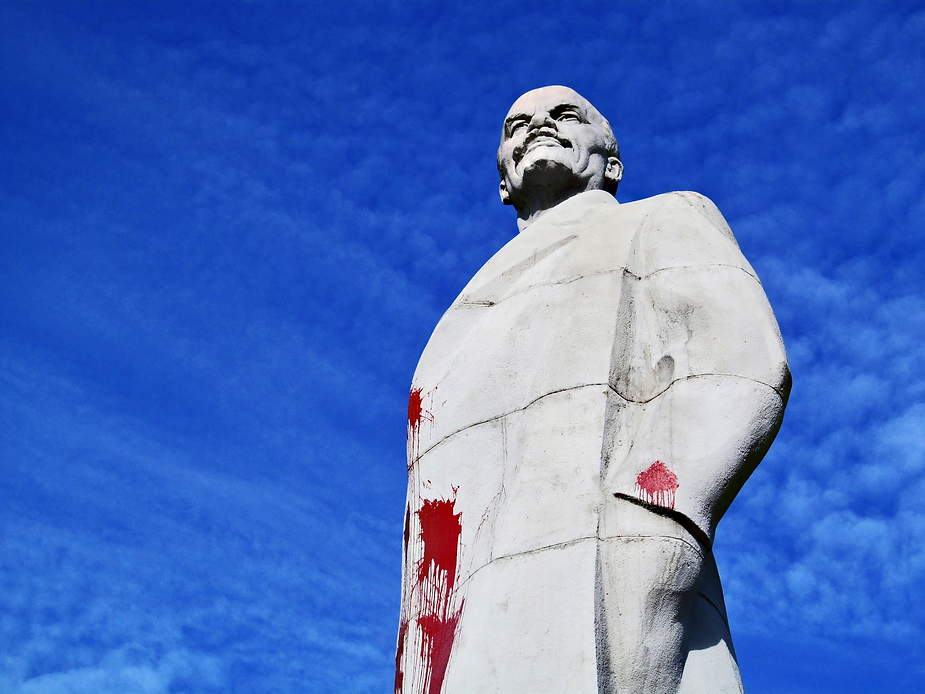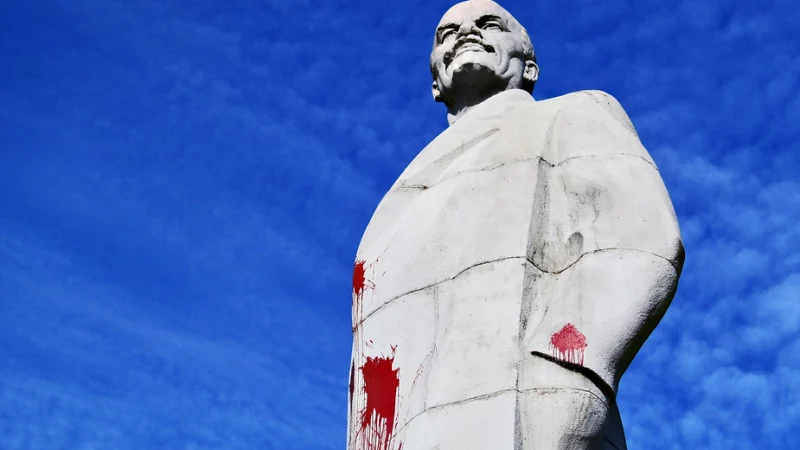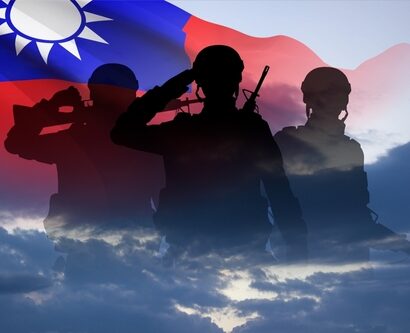Abstract: Security policy is shapeshifting in time and space. Ethics and ethical forms of politics are especially noteworthy in developing countries, where political culture is established later (or not at all) compared to successful countries.
Problem statement: How is it possible to reconcile the standards of NATO’s security policy with potential member states while respecting political-ethical standards?
So what?: The North Atlantic Treaty Organisation needs to emphasise the evolution of political authority and public perception. Governments frequently attempt to radicalise specific narratives in the post-Soviet space to boost their political standing for long periods. This applies even to those countries that want to get closer to the European Union.

Transformation Toward Ethics
Ethical understanding can be found in political sciences in classical and modern directions. The ethics of politics in the classical sense is expressed in the communication of institutions, society, and government where every rule dictated by democracy is observed – observed in tangible forms and not by media statements of politicians or grotesque dedications of society.[1] Defining political ethics is difficult to understand in the modern sense. However, it is a happy ending to a spontaneous political process.[2] For example, if urban-related innovative infrastructure does not endanger the environment to a large extent, we can say that we are dealing with political ethics. Political ethics has the potential to advance moral leadership, safeguard human rights, and guarantee justice and fairness in political judgments. However, it also encounters difficulties because of moral conundrums, cultural disparities, deceit, and the continuation of corruption. The dedication of people and institutions to defend moral principles, as well as the watchfulness of civil society in keeping them accountable, are necessary for political ethics to be effective.
The ethics of politics in the classical sense is expressed in the communication of institutions, society, and government where every rule dictated by democracy is observed – observed in tangible forms and not by media statements of politicians or grotesque dedications of society.
Post-Soviet countries, especially those outside the European Union, often blame the USSR for establishing a political culture in an indeterminate way. The Soviet Union put a negative social, cultural, economic and moral mark on generations. However, how were some European countries, such as Germany and Italy, free-falling after Nazism and USSR, able to create strong institutions? In the political process, crossing red lines defined by ethics is permissible only when scientific evidence exists. By scientific evidence, it does not mean a mathematical model that predicts a person’s behaviour tomorrow. However, it is possible to present several scenarios with the past classification. Also, it is possible to create those red lines beyond which the political process is a lie, a marketing move, spinning the wheel of fortune, or sabotaging one’s own people. Political ethics require planning; even motorised improvisation must inevitably be based on expectations.[3] Post-Soviet nations frequently hold the USSR responsible for developing an ambiguous political culture, especially those outside the European Union.
Generations were left with poor social, cultural, economic, and moral legacies from the Soviet Union, so how did other European nations, who were in free fall after the USSR and Nazism, manage to build robust institutions? Only when there is scientific evidence is it acceptable to cross ethically accepted borders in politics. Indeed, there is no mathematical model that forecasts someone’s future behaviour when claiming “scientific evidence.” With the past classification, a variety of scenarios might be presented. Ethical security policy transformation refers to redefining and reshaping a nation’s or organisation’s security policies and practices to align more closely with ethical principles and values. The underlying concepts and ideals that establish what is ethically right or wrong are called ethical principles or ethical values. These values offer people and societies a framework for moral assessments and choices. A variety of lenses, such as cultural, philosophical, and theological perspectives, are frequently used to construct ethical concepts. They do not have intrinsic flaws, but their application and interpretation can differ, creating problems in post-Soviet countries as well as other international contexts. Due to their history, governance, and economic transition, post-Soviet countries have particular ethical concerns that must often be resolved by traversing difficult moral conundrums. This transformation can encompass a wide range of areas, from national defence strategies to international relations and the conduct of military operations. Ethical security policy transformation is a complex and ongoing process that requires a commitment to values and a willingness to adapt policies as circumstances evolve. It aims to strike a balance between security imperatives and ethical considerations to create more just and sustainable security practices at the national and international levels.
Generations were left with poor social, cultural, economic, and moral legacies from the Soviet Union.
It is unfair to demand ideal forms of security policy ethics equally from developing countries and, e.g., the U.S. or the UK, because these states have strong political cultures that have a major focus on their citizens, are highly developed, and are experiencing strong economic trends. However, no educator, scientist, or philosopher has stated that politics, history, and life offer completely fair rules.
Ethics and Security – The Spiraling Coexistence
Theoretical Contours
Historically, it is difficult to create scientific frameworks and find out when states started to outline ethical adepts in security policy. The sources informed about the area of spread of armed conflicts, military-strategic decisions, and campaigns beyond the borders with the vicissitudes that belonged to the commanders and monarchs. From a purely scientific point of view, Sun Tzu’s “Art of War”, Thucydides’ “Peloponnesian War”, Clausewitz’s “On War”, Strachan’s “The First World War” and Shearer’s ”The Rise and Fall of the Third Reich” are echoes of the line of security ethics that continue to be inherited in different eras. Although the mentioned sources count two millennia of human history, it is still possible to find crossing points – the book deals not only with war at different stages of human development but also with the state of security when the latter remains beyond the boundaries of ethics.
Even political documents like the National Security Act of 1947 define the concept of national security of the state arbitrarily and also represent a springboard for ethics. Since there is no internationally agreed etymological definition of ethics and security, it is necessary to understand how the latter is defined in terms of content. The issue is that the independent state has an individual perception of national security and national security policy.[4]
Even political documents like the National Security Act of 1947 define the concept of national security of the state arbitrarily and also represent a springboard for ethics.
In academic studies, the definition of security policy is used by formulating all elements as much as possible. Security policy refers to protecting a specific object from a threat and/or potential threat, and its ramifications are divided into four directions – global security, regional security, national/state security, organisational security and human security.[5] At the individual level, it is possible to create an ethical framework, but scientific circles always avoid prioritising ethics for various reasons, including ideological approach, legal environment, and lack of empirical data.[6] Each of them has an argument and a counter-argument. The ideological approach refers to what kind of management system a particular state uses to implement its security policy. For example, in liberal democratic states, such as the UK, it is expected from the security policy that the principle of non-interference in personal data is used as much as possible, while in authoritarian Russia, there is a high degree of pressure on personal information. The closed nature of security policy is considered in the legal environment, which creates a scarcity of empirical data on the chain principle.[7]
Security Policy Theories and Ethical Narratives
In 2004, Steven Lovaas published an essay in which he emphasised the importance of the variable of ethics in all three phases of policy implementation. The hypothesis refers to organisational and informational security, according to which the security policy should be equally delivered to individuals with different moral standards.[8] More precisely, Lovaas refers to drawing ethical contours so that individual and organisational ethics are maximally congruent. Suppose we generalise the mentioned hypothesis to the level of global and national security. In that case, we can assume that the integrality of ethics in security policy should be delivered with the same effectiveness to countries and citizens with different moral standards. In this regard, Zedner writes that the ethics of security policy is directly related to the value that an individual has to maintain his vital interests.[9] In another prism, there are considerations regarding the ethics of security policy and the assimilative nature of individual value, which we can call the “trade of political ethics”. In particular, the practical form of the “social contract” after the terrorist act 9/11 – society has given up some freedom to the government to ensure a high level of security. Philosophers like Thomas Hobbes, John Locke, and Jean-Jacques Rousseau are credited with first introducing the idea of the “social contract” as a political and philosophical concept. It refers to the tacit understanding that exists between people and their government or society, whereby people give up some of their freedoms in return for protection and the upkeep of order. Depending on the society, historical setting, and particular events, this idea can be expressed in many ways and interpreted in different ways. To monitor the communications, actions, and conduct of people and groups suspected of engaging in terrorism or other criminal activity, the US government put in place more broad surveillance operations. This raised issues with privacy and the possibility of power abuse.
There are considerations regarding the ethics of security policy and the assimilative nature of individual value, which we can call the “trade of political ethics”.
After 9/11, there was universal support for tighter security controls, even if it meant giving up some individual liberties. Many choose to prioritise safety over individual liberties as a result of the threat. Therefore, it can be concluded that ethics in security policy is shapeshifting and dynamically changing in response to contemporary challenges. We can not find similar experiences in the NATO member states at this time, although there were many similar practices throughout history.
Ross Bellaby tried to bring intelligence as a security instrument into an ethical framework, which consists of six fundamental elements: legitimate reason, fair supervision, legitimate determination, proportionality of threat, selection of action from low to high concentration of gravity, and determination of legitimate and illegitimate objects of interest.[10] States, more or less, try to build security policies on the mentioned system, but it often remains only on paper. Parallel to this, Barry Buzan proposes the higher conglomerates, with which the analysis of international relations begins, continues with the international sub-union, and ends with the individual. Moreover, the ethical aspects of security policy face so many interdisciplinary issues that the accumulated knowledge about the latter is absolute, relative, or even non-existent.
Ethical Problem of Securitization
The ethics of security policy largely intersects with the theory of securitisation. From a conceptual point of view, researchers explain securitisation in two directions – philosophical and sociological. Conditionally, these directions may be called scientific approaches, emphasising the importance of securitisation. For example, from a philosophical point of view, securitisation tries to present the whole dynamic picture in a sociological framework.[11] Although sociological and philosophical connections explain the concept of securitisation in different ways, in the 21st century, it is difficult to perceive an ethical picture without both. More precisely, securitisation theory should use both directions for factual analysis and, more importantly, for making predictions.[12] If we consider the military crimes committed by Russia in Ukraine with the socio-philosophical perception of securitisation as a fact, we will see that we are dealing with a crime of international law based on immoral actions.[13]
Ethical values are also the primary source of legal systems.[14] Moral values are also the primary source of legal systems. Legal systems are frequently significantly shaped by moral principles.[15] Morality and legality have a complicated and nuanced relationship that can change depending on cultural, historical, and philosophical considerations. It’s crucial to remember that morality and the law don’t always have an easy relationship. The conflict between national security objectives and the moral precepts of proportionality, distinction, and accountability in the conduct of armed conflict can occasionally be brought to light. It also calls into question how different nations and international organizations comprehend and put into effect the legal and moral framework underlying the use of force in foreign and security policy.[16] For example, under international law, the use of force is authorized on the territory of another state if there is a risk of imminent danger and/or with the authorization of the United Nations Security Council. country. The war on terrorism mainly takes place under the jurisdiction of different countries, while drones and thermal missiles can be used as a weapon. The moral imperative conflicts with the law in that citizens can use the weapons in question. This problem becomes acute in densely populated areas, and in many cases, terrorists use these places as hideouts. There may be disagreements regarding whether moral principles ought to be enshrined in law since different people and groups within a community may hold disparate moral convictions.[17] To guarantee that laws reflect the shifting ethical landscape of society, continual discussion, reflection, and adaptation are necessary to address the complex interplay between moral principles and legal systems.[18]
Ethical values are also the primary source of legal systems. Moral values are also the primary source of legal systems. Legal systems are frequently significantly shaped by moral principles.
A second ethical problem with securitisation is non-universal definitions. From a practical point of view, we do not know how each country understands security. For example, in the case of the Russian Federation, national security remains theoretically in legal documents. In reality, the latter is defined as the military attack, expansion and occupation of the neighbouring countries. Providing security for the Baltic states and Poland is a springboard that changed the balance of European power. For Israel, securitisation is purely associated with military deterrence, which they have successfully managed.[19] The shortcomings in Israel’s deterrence system are clearly shown in security issues. First of all, it should be noted that Israel is capable of maintaining the basic values of democracy, being a regional actor and above all, defending its sovereignty, precisely thanks to a successful security model.
Providing security for the Baltic states and Poland is a springboard that changed the balance of European power.
The attack organized by Hamas created a kind of theoretical framework in the theory of securitization, which can even be generalized. For example, security is not a static and fixed object. On the contrary, the latter must undergo continuous changes and improvements. Evidence-based policy has contributed to the development of national security in the U.S. and Great Britain. Their situation differs significantly from that of developing nations since, since the second half of the 20th century, neither Great Britain nor the U.S. has fought a defensive war on its own soil; instead, military operations have taken place thousands of kilometres away. A military failure committed thousands of miles away remained a military failure and had no impact whatsoever on the system of national security. The reality of a nation like Georgia does not match up with this kind of experience. In this instance, Georgia refers to all states that are at war and must grow in such circumstances. Therefore, we also face an ethical problem in the theoretical part, which is reflected in practice.[20]
NATO and Ashes of History
The ideological deviation between NATO’s security policy and the Soviet successor, Russia, strongly correlates. Precisely because of the strictly protected boundaries of the standard of values that the North Atlantic Treaty Organization, like the EU institutions, is often criticised.[21] Moreover, Russian propaganda narratives often equate the ethical foundations of the same institutions with incompetence.[22] The task of the article is not to conceptualise Russian propaganda messages; the latter reflects on the ethical policy of NATO member states.
The war waged by Russia in Ukraine showed the need to reassess the values of the world order in a wide spectrum. Even those generations who were lucky enough not to be born in the Soviet Union can see Soviet reflections in Russia’s foreign policy.[23] Moreover, in addition to the legal legacy of the Soviet Union, Russia is predictably carrying out the plan with the goal of turning back the political landscape by a century.[24] Willingly or unwittingly, the rational decisions taken by the European Union often nourished the vicious legacy of the Soviet Union and paved the way for the unethical instruments of the security policy that ended up collapsing.[25]
In addition to the legal legacy of the Soviet Union, Russia is predictably carrying out the plan with the goal of turning back the political landscape by a century.
Armour of Peace Project
Politicians and scholars of international relations all agreed that the European Union, more so than the common market or the Schengen area, is a project for peaceful coexistence. Although there is no single definition of what constitutes peace, this condition requires defence and high-security guarantees.[26] With this goal in mind, NATO was established to keep everything balanced on the same axis.[27] Numerous academics have attempted to explain NATO’s activities and determine if they were based on Defensive Structural Realism or, following Bosnia and Serbia, Offensive Structural Realism.[28] For a better understanding of the theoretical visions, the above-mentioned theories should be defined.
Classical realism is fundamentally different from structural realism at the conceptual level. A prerequisite for structural realism is the international order’s distortion and/or anarchy that causes states to pursue power-oriented policies. Understanding how nations behave in the international system in a more cautious and security-focused way is possible thanks to defensive structural realism. It implies that even while states strive to maximise their security, their actions may unintentionally spark conflict because of the security conundrum. This theory, like other schools of international relations thought, advances our knowledge of the intricate relationships between states on a global scale. Offensive structural realism offers an alternative viewpoint on how states interact within the international system. It implies that states act competitively and possibly violently because they are motivated by a desire for hegemony and power. This theory, along with Defensive Structural Realism, advances knowledge about how the anarchic character of the international system and the distribution of power among nations affect state action.
In a reproachful tone, Kissinger asks a rhetorical question about Europe, whose hidden parameter concerns NATO – why does Europe, a pioneer of deterrence and balance, block the military element in itself? Also, there were opinions that NATO, more than a military alliance, represents an institute whose goal is to manage crises and security.[29] The realism school of international relations is linked to the most well-known international theories of alliance formation.[30] They emphasise how states join alliances to consolidate their military capabilities and intensify their security positions and are also reference capabilities aggregation models.[31] As an explanation of the development, persistence, and dissolution of alliances, the balance-of-power theory may be overly simplistic. Balance-of-threat theory, however, takes a more nuanced approach, but this improvement comes at the expense of additional analytical issues. In other words, the latter is similar to the multipolar, bipolar, and multipolar/bipolar active phases of the balance of power. Based on the sources, there are three phases of NATO:
- Cold War Phase – in this situation, the main purpose of NATO was to protect the European continent from Soviet aggression. After the defeat of Nazism and nuclear armament, Soviet ambitions grew in multi-continental terms;
- The Post-Cold War Phase – 9/11 and the growing trends of terrorism – put it on NATO’s radar. Added to this were the missions in Afghanistan, where small states like Georgia were given the opportunity to define the European discourse and emphasise their importance in the world order; and
- Active Phase – after the war in Ukraine, it became obvious that the main threat to NATO is still Russian aggression. Unlike previous phases, NATO has to deal with changing and evolving challenges in the form of cyber-attacks and propaganda. The ethical standards on which the alliance is based become the target and main artery of Russian propaganda.
Ethical Questions Towards NATO
One of NATO’s primary functions is to promote stability and security in its member countries; however, as the organisation’s role has grown, so have its ethical challenges. For example, NATO’s intervention in Afghanistan brought up ethical problems concerning the use of armed forces in global conflicts and the influence of such interventions on local populations.[32] Besides that, the alliance’s greater emphasis on cyber defence has voiced doubts about using military power in cyberspace and the repercussions of such actions on the civil liberties of individuals and nations.[33]
NATO’s intervention in Afghanistan brought up ethical problems concerning the use of armed forces in global conflicts and the influence of such interventions on local populations.
This principle, however, raises ethical concerns about collective defence, especially when the attack does not invariably pose an immediate threat to the security of all members. For example, the alliance’s participation in the 2011 intervention in Libya was strongly criticised for the lack of a clear rationalisation for the use of military force and the potential harm to the Libyan people
Despite these contradictory and reversible actions, NATO is an organisation that allows for mistakes. Placing these mistakes in an ethical context often leaves a feeling of inaction, effectively used by the Kremlin’s propaganda. For example, on November 15, 2022, a missile struck Poland near the Ukrainian border in the village of Przewodów, and later a Russian missile crossed Romanian airspace.[34] These and other events caused a scientific debate in the international community. Should NATO’s principle of collective defence be invoked?
The principle of collective defence itself is an ethical basis, although its implementation is a long and complex procedure. First of all, to refute the propaganda of the Kremlin, it should be noted that NATO does not have an independent military human resource; the latter operates based on the Allies’ agreement.
Political-Cultural Challenges
Foreign economics greatly influences international politics since it fosters strong business relationships between nations and can contribute to world peace. The market economy makes international trade increasingly more significant due to the growing interconnectedness in contemporary society. Today, all nations engage in international trade since none can sustain themselves.
The present stage of the world economy is evolving quickly, and nations are trying not to lag behind this pace in any way. The growth of the national economy depends on its push for globalisation, which strengthens the interdependence of various nations, and creates commodity and financial markets, and all of this sparks particular interest, particularly in the academic study of Israel’s international economic relations.
NATO’s establishment has been an important part of the international security agenda for half a century. International support for the development of trade and the creation of economic zones is increasing. Against this background, special attention is paid to the study of the economic activity of those states that are located in regions at risk of war. Israel has a special place among the second economic states. Despite constant support from the international community and Middle Eastern states, Israel’s economic relations with other countries are rudimentary.
NATO’s establishment has been an important part of the international security agenda for half a century. International support for the development of trade and the creation of economic zones is increasing.
The mentioned factors and characteristics of NATO help small states to naturally protect themselves from internal challenges. However, there are limits and frameworks if small states can achieve the amplitude of possibilities on their own. They require external protectors, states that provide them with protection and assistance. NATO should pay attention to be active in the following directions:
- Increase transparency – NATO can take steps like frequent briefings and press releases, making important decisions public, releasing details on military drills and deployments, and having open discussions with its partners, allies, and the general public to promote openness in its operations. In the end, a transparent strategy that is well-balanced and implemented can help to make the NATO alliance stronger and more productive.
- Combating propaganda in potential member states – Each possible member state’s unique cultural, social, and political environment should be considered while developing the techniques to be used. To effectively counteract propaganda and guarantee that citizens have access to factual information, cooperation between NATO member states, international organisations, and local stakeholders is essential; and
- Promote digital literacy – by teaching individuals, particularly young people, about responsible online conduct and security. Teach children how to distinguish between legitimate and false sources, as well as how to safeguard their personal information online. Give money and resources to civil society groups that fight misinformation, advance media literacy, and support free and independent media.
Thus, NATO faces both military and political-cultural challenges. This situation has a heavy impact on the countries of the post-Soviet space. Therefore, mutual engagement and cooperation at all levels are necessary to achieve effective results.
David Shakarishvili; National Security and Intelligence Policy, Political Economy and Ethical Policy. Doctoral candidate of Political Sciences at Klaipeda University, former research analyst at London Politica, former Senior Researcher of Security Policy at Thomas Jefferson Research Center. Former researcher in residence at the Organization for Security and Cooperation in Europe. Former Guest Lecturer at Vilnius University of Applied Sciences, University of Szeged, University of Economics at Katowice. Author of more than ten scientific articles. The views contained in this article are the author’s alone and do not represent the views of Klaipeda University.
[1] Reinhold Niebuhr, Moral Man and Immoral Society: A Study in Ethics and Politics. Louisville: Westminster John Knox Press, 2013, 10-12.
[2] Marian Quigley, Information Security and Ethics: Social and Organizational Issues. Quezon: IRM Press, 2017, 8-10.
[3] Emily Crookston, David Killeron, and Jonathan Trerise, Ethics in Politics: The Rights and Obligations of Individual Political Agents, New York: Routledge, 40-48.
[4] Karen Greenberg, ed. “Tracking the Decline of Liberalism,” In: Reimagining the National Security State: Liberalism on the Brink, 35–138, Cambridge: Cambridge University Press, 2019, 30.
[5] Seumas Miller, Mitt Regan, and Patrick F. Walsh, National Security Intelligence and Ethics (Studies in Intelligence), New York: Routledge, 2021, 10-15; Adam D. Moore, Privacy, Security and Accountability: Ethics, Law and Policy, London: Rowman & Littlefield Publishers, 2015.
[6] Emily Croockton, David Killeron, and Jonathan Trerise, Ethics in Politics: The Rights and Obligations of Individual Political Agents, New York: Routledge, 2017.
[7] Mark R. Amstutz, International Ethics: Concepts, Theories, and Cases in Global Politics, London: Rowman & Littlefield Publishers,2013, 10.
[8] Michael Kabay, Ethics in security policy: Approaching security policy with ethics in mind, April 05 ,2005.
[9] Zedner, Lucia, “Securing Liberty in the Face of Terror: Reflections from Criminal Justice,“ Journal of Law and Society, 507-533, 2005.
[10] Ross Bellaby, The Ethics of Intelligence: A new framework, New York: Routledge,2014, 30-32.
[11] David Welch, Security: A Philosophical Investigation, Cambridge: Cambridge University Press,2022, 40-45.
[12] Ross Bellaby, The Ethics of Intelligence: A new framework, New York: Routledge, 2014, 10-12.
[13] Emily Croockston, David Killeron, and Jonathan Trerise, Ethics in Politics: The Rights and Obligations of Individual Political Agents, New York: Routledge, 2017, 32.
[14] Samuel Huntington, American Politics: The Promise of Disharmony (2 ed.), London: Belknap Press, 2018.
[15] Lon L. Fuller (Lon Luvois), 1902-1978. The Morality of Law, New Haven: Yale University Press, 1964,1-3.
[16] Norman Geisler, Legislating Morality: Is It Wise? Is It Legal? Is It Possible?, Oregon: Wipf and Stock Publishers, 2003, 12-18.
[17] Andreas Televantos, Capitalism Before Corporations: The morality of business associations and the roots of commercial equity and law (Oxford Legal History), Oxford: Oxford University Press, 2021, 4-6.
[18] Engeli Isabelle, Christoffer Green-Pedersen, and Lars Thorup Larsen, “The Two Worlds of Morality Politics — What Have We Learned?,” Morality Politics in Western Europe, 185-199, 2012.
[19] Mark Bevir, Interpretive Political Science, Berkeley: SAGE,2010, 80-88.
[20] Adam D. Moore, Privacy, Security and Accountability: Ethics, Law and Policy, London: Rowman & Littlefield Publishers, 2015, 27.
[21] Stephanie C. Hofmann, “Conclusion,” In: European Security in NATO’s Shadow: Party Ideologies and Institution Building, 204–16, Cambridge: Cambridge University Press, 2013, doi:10.1017/CBO9781139245920.007.
[22] Liliana Riga, “Imperial Strategies and Routes to Radicalism in Contexts,” In: The Bolsheviks and the Russian Empire, 55–276. Cambridge: Cambridge University Press, 2012.
[23] Mary E. Sarotte, Not One Inch: America, Russia, and the Making of Post-Cold War Stalemate, New Haven/London: Yale University Press, 2021, 36-38.
[24] Wallace J. Thies, Why NATO Endures, Cambridge: Cambridge University Press,2009, 5-7.
[25] Fareed Zakaria, The Post-American World (1 ed.), Boston: W. W. Norton & Company, 2007, 112-118.
[26] Stanley R. Sloan, Defense of the West: NATO, the European Union and the transatlantic bargain, Manchester: Manchester University Press, 2016, 19-20.
[27] Seth A. Johnston, How NATO Adapts: Strategy and Organization in the Atlantic Alliance since 1950, Baltimore: Johns Hopkins University Press, 2017, 121-122.
[28] Seth A. Johnston, How NATO Adapts: Strategy and Organization in the Atlantic Alliance since 1950, Baltimore: Johns Hopkins University Press, 2017, 130.
[29] Henry Kissinger, World Order, New York: Penguin Books, 2015, 37.
[30] Mark Bevir, Interpretive Political Science, Berkeley: SAGE, 2010, 44.
[31] Milind Kulkarni, Interdisciplinary Perspectives in Political Theory, New Delhi: SAGE India, 2011, 57-58.
[32] Stephanie C. Hofmann, “Conclusion,” In: European Security in NATO’s Shadow: Party Ideologies and Institution Building, Cambridge: Cambridge University Press, 2013, 204-2016, doi:10.1017/CBO9781139245920.007.
[33] Bledar Prifti, US Foreign Policy in the Middle East: The Case for Continuity (1 ed.), London: Palgrave Macmillan, 2017, 30-31.
[34] Jon Henley, Missile that hit Poland likely came from Ukraine defences, say Warsaw and Nato, 2022, Retrieved from Guardian.com, https://www.theguardian.com/world/2022/nov/16/poland-president-missile-strike-probably-ukrainian-stray.






